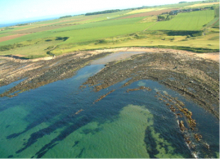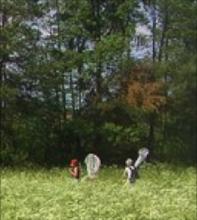
THE WORKSHOP
The workshop will be run over two days at the University of Reading in spring 2013 (dates TBC). It is designed for any postgraduate students who are currently involved in, or who are planning to start, scientific research which requires the input and analysis of data.
While the focus will be on landscape ecology, a wide range of data resources and statistical methods will be explored, many of which are directly applicable to those studying in the fields of ecology, biological sciences, geography, environmental science or similar.
The workshop will be highly interactive and run to the needs of participants. Prior to the start, all students attending will be asked to fill out a short form detailing their research and what they would like to get out of the workshop i.e. specific focus on a statistical method, or guidance on obtaining data for their work. This will allow the guest speakers to tailor their sessions to the needs of the group.
SCOPE
Landscape ecology is the study of interactions, across space and time, between the structure and function of physical, biological and cultural components of landscapes. The importance of a landscape-scale approach is recognised by conservation practitioners on the ground, right up to policy makers at the Governmental level. Science and research is an integral part of this chain, with analytical, detailed and innovative research providing the knowledge base which guides effective management and conservation at the practical level and for future legislation and policy.
This workshop will provide an opportunity for those engaged in research at MSc & PhD level to explore the types of data which are available to them, and to be introduced to a range of techniques commonly used when analysing landscape, cultural and ecological data.
OBTAINING DATA FOR RESEARCH
There are a huge variety of data sources available to students, many of which are open source or readily available under license at no extra cost. This includes spatial data for use in Geographic Information Systems (GIS), species and biodiversity data and cultural and heritage information.
In addition to existing sources, there is scope to collect real-time data in the field; a method which can provide vast amounts of biologically accurate and representative information. The use of field data is often used in addition to secondary sources to validate trends found.
ANALYSING DATA
The scientific nature of landscape ecology means that the use of statistical techniques to analyse findings are often required. Numerous software packages and countless statistical tests and methods are available to suit all types of data, yet it can be confusing to know which are best to use.
PROGRAMME
While the programme has yet to be finalised, this section provides an outline as to the sort of things you could expect to cover, with all sessions run by people with extensive knowledge and experience in their field:
DAY 1: Obtaining secondary data
An introduction to online resources including the National Biodiversity Network, CEH Landcover Map, Ordnance Survey, Natural England, English Heritage and CASweb. It will include information on open-source data, obtaining licences and use of the data in GIS.
DAY 1: Collecting primary data in the field
 A look at different sampling techniques and a discussion into the advantages and drawbacks of using field data. There will be opportunity to engage in some fieldwork, such as bird ringing and survey, butterfly and insect sampling, bat detection, plants and mosses. The exact choice will be governed by participant interest and weather on the day.
A look at different sampling techniques and a discussion into the advantages and drawbacks of using field data. There will be opportunity to engage in some fieldwork, such as bird ringing and survey, butterfly and insect sampling, bat detection, plants and mosses. The exact choice will be governed by participant interest and weather on the day.
DAY 2: Analysis of data
The part of research least favoured by many students! We will take a look at popular techniques used in landscape ecology including multivariate analysis and ordination using software packages such as R and Canoco. This session will be strongly driven by the requests of the participants with opportunity to seek answers and advice for your own research.
DETAILS
In the next newsletter I shall provide a finalised version of the programme, a list of speakers, exact dates, fees and registration information – watch this space!
In the meantime, if you think you may be interested in attending or would like some more information please contact me at students [at] iale [dot] org [dot] uk. That way I can make sure you are kept up to date with information and respond to any requests / questions you may have.
Jess Neumann – Postgraduate Coordinator


